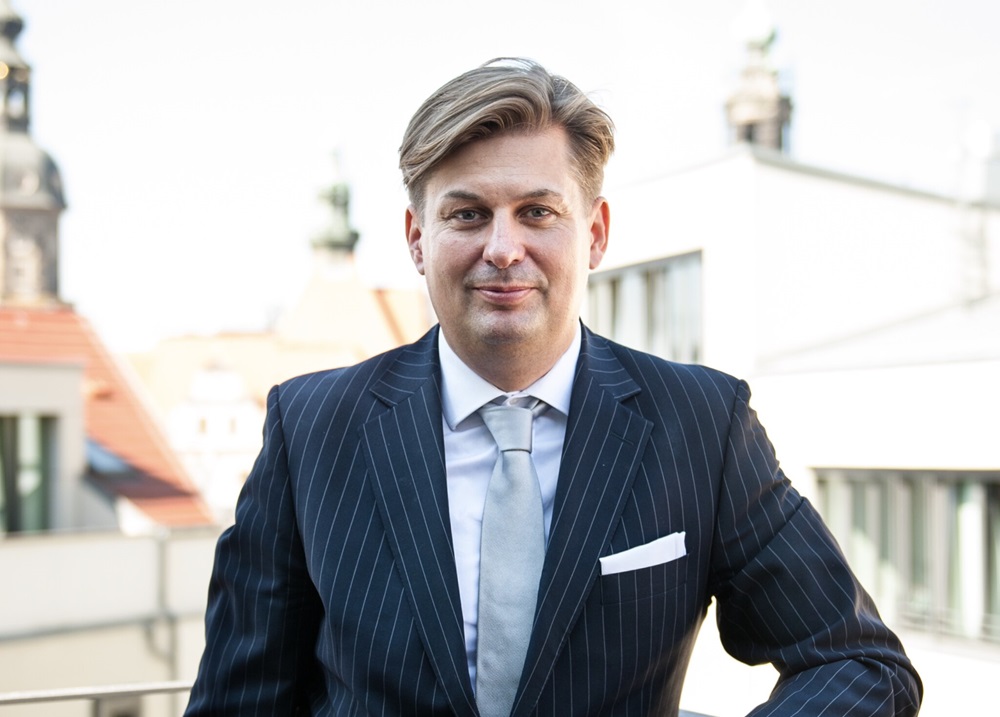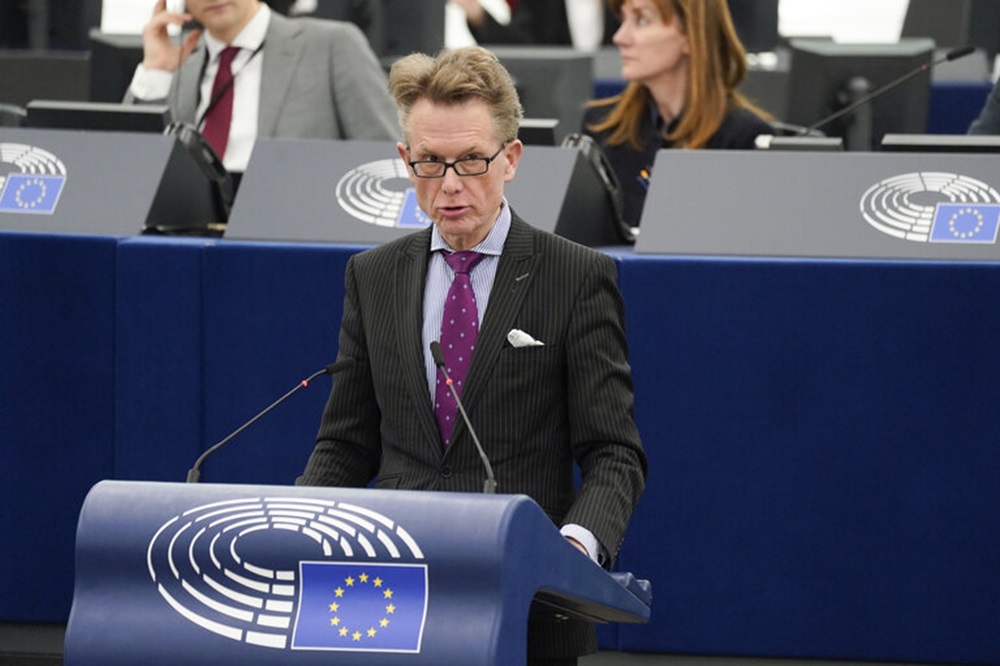German far-right leaders defend the SS but aren’t so keen on Wales

Luke James, Brussels
The Alternative for Germany (AfD) has let its mask slip. Again.
When it was created back in 2013, the AfD presented itself as a party of free-market economists with legitimate concerns about the direction of the Eurozone. All very respectable.
But it didn’t take long for it to become a full blown far-right party which regularly generates scandals over racism, antisemitism and Nazi apologism.
The latest came in an interview Maximilian Krah, the party’s lead candidate for the European elections, gave to the Financial Times this week in which he defended the SS.
When given the chance to put some distance between himself and the perpetrators of the most heinous war crimes committed in Europe, Krah answered: “Can you really say that because someone was an officer in the Waffen-SS they were a criminal?”
That was even too much for the party founded by Jean-Marie Le Pen, who was infamously convicted for calling the holocaust a “detail” of history.
Identity and Democracy party
The AfD have been thrown out of the Identity and Democracy party, which brings together the European far-right, at the behest of its French member, the Rassemblement National – the former Front National rebranded as part of Marine Le Pen’s efforts to help voters forget about its own history with the Waffen-SS.
It’s too late to change the ballot papers so Kral remains the AfD’s lead candidate for the European elections but he has quit the party’s board and stepped back from campaigning.
The second on the AfD list, Petr Bystron, is not in the position to take the reigns given he’s currently subject to an international investigation into a Russian cash for influence scandal.

That leaves it to the likes of Gunnar Beck, the deputy leader of the AfD in the European Parliament, to try and turn around a tanking campaign.
Shoplifting
Beck is also embroiled in a controversy although a mild one by the AfD’s standards – a simple allegation of shoplifting product samples from a department store and resisting police.
“Our job is not to talk about history,” Beck told the Huffington Post of Kral’s comments, in a rather mild rebuke.
Beck, a former legal academic at London’s SOAS University, is something of a history buff himself though if his interventions in Brussels and Strasbourg are anything to go by.
One that catches the eye is his contribution to a debate with the Croatian Prime Minister held in 2022 – the last time Wales was mentioned on the floor of the European Parliament.
Questioning Croatia’s decision to join the Euro, Beck said: “An individual may be tempted to give up his soul for the whole world, but for Wales?”
He was quoting from Robert Bolt’s 1960s play, about 16th century statesman Thomas More, A Man for All Seasons, which was later turned into a popular film.
More says the line in a scene in which he sees a former friend who has betrayed him in exchange for an appointment to the position of Attorney General for Wales, with the obvious implication that he had sold out for a low price.
Anti-Welsh prejudice
As the professor of English language, Colin Cavendish-Jones, has written: “Wales has been the butt of English jokes since time immemorial. Anti-Welsh prejudice would therefore have been familiar to Sir Thomas More, with many further instances over the succeeding centuries being known to Robert Bolt.”
This strange choice of quote is clearly at the least serious end of the AfD’s rap sheet but it does give us a glimpse into the tombola of prejudices on which its politicians draw.
If they’ve got MEPs giving speeches based on outdated prejudices about Wales from 60-year old plays, you can imagine from which eras of history their private views on other people come from.
Those which have become public over the course of the campaign are thankfully starting to have an effect on voters.
After polls in February put the AfD on course to come joint first with 20 seats, they have now fallen behind the German social democrats into third place and could win fewer than 15 seats.
That would mean Beck, who is 18th on the AfDs list, would lose his seat.
Far-right MEPs
Nonetheless, polls suggest there will be an increased number of far-right MEPs in the next European Parliament, particularly from countries where they have learned not to say the quiet bit out loud.
All democratic parties apart from one have pledged not to work with the far-right – the exception being the European People’s Party, which is the largest in the European Parliament.
Its lead candidate, current Commission President Ursula von der Leyen, has repeatedly refused to rule out working with the party of Italian Prime Minister Giorgia Meloni.
That’s despite the fact that Meloni joined Marine Le Pen at a far-right rally in Madrid last weekend and is under fire in Italy for undermining LGBT rights and press freedom.
The question that needs to be asked then is then not what price for Wales, but what price for the soul of Europe?
Support our Nation today
For the price of a cup of coffee a month you can help us create an independent, not-for-profit, national news service for the people of Wales, by the people of Wales.






The party that gave Farage a standing ovation very recently and his bestesd chums when he was an MEP.
Still Voting reform?
Sadly there will be quite a few who will, for whatever crazy reasons they will justify their choice.